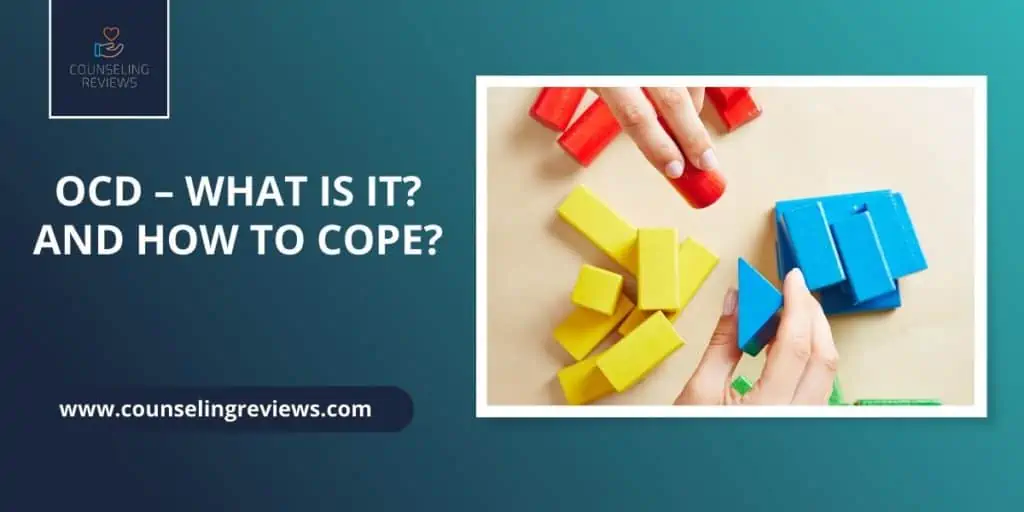Obsessive-Compulsive Disorder is a mental health disorder faced by many people. It is well known, but often misunderstood or minimized. Like other mental health issues, when left untreated, it can spin out of control, taking hold of a person’s life. This disorder can cause people to feel isolated, overwhelmed, and misunderstood. Thankfully, it is manageable and treatable, meaning that with hard work and dedication, a person can overcome OCD.
Definition of OCD
Obsessive-Compulsive Disorder, or OCD, as it is commonly referred to, is an anxiety disorder. People who have OCD have constant and recurring instructive thoughts and behaviors. In order to quell their anxiety, they must repeat the behavior over and over again. This type of anxiety can control a person’s life, making it hard to function regularly. Their job, relationships, and daily life is affected by their disorder.
It is essential to understand that obsessions and compulsions are two separate parts of the disorder. Obsessions are the thoughts, images, or impulses that cause anxiety. Compulsions are the behaviors that take place to manage obsessive thinking. These two components work together to make a person suffer from OCD.
Statistics
In the last year alone, around one percent of Americans reported that they have suffered from OCD. Every day, people with OCD spend at least one full hour trying to cope with their obsessive thoughts and compulsions. While an hour may not seem like a lot, committing that amount of time to the same problem is hugely time-consuming.
Treatment for OCD can be helpful for some; however, as many as 30-60% of people who receive treatment say that it does not relieve them of their obsessions. Due to this, it is essential to find more ways to feel more comfortable in your everyday life.
Triggers
Stress is one of the most general triggers for OCD behaviors. However, different obsessions have their own specific triggers. This is because the intrusive thoughts are themed or based on selected images. These are some common OCD symptoms.
Common obsessive triggers and their compulsive behaviors include:
- Fear of being dirty or contaminated
- Washing hands to the point of raw skin
- Doubting a task was completed.
- Checking and rechecking the same thing over and over
- Requiring order or symmetry
- Counting in patterns
- Constant thoughts about losing control
- Repeating words or phrases
These are just a few common triggers that people who suffer from OCD can experience. OCD may be unique to a person. However, what remains common is that when the obsessive thought becomes overwhelming, the compulsion becomes triggered.
Tips on How to Cope
OCD may be difficult to overcome, but it is possible. There are several ways you can self-manage your symptoms. These may not take away your obsessions and compulsions, but it can help you feel more comfortable.
Tips for self-managing OCD:
- Exercise
- Get lots of sleep
- Meditate
- Practice relaxation techniques (deep breathing, yoga, etc.)
Alternatively, seeking professional help can help you to confront your intrusive thoughts and compulsions. This can help you work towards overcoming your OCD.
Types of professional help:
- Cognitive Behavioral Therapy (this is short term, structured therapy that focuses on a specific issue)
- Try exposure and response prevention ERP therapy (this is where you are exposed to the anxiety and learn new behaviors to overcome it)
- Medication (this should only be taken with the instruction of a professional)
How Can Online Therapy Help?
Online therapy is an excellent route for people suffering from OCD. Unlike traditional therapy, online counseling can be done from the comfort of your own home. This is especially helpful when OCD makes it difficult to leave the house. Additionally, it is a cost-effective method, so those who are budget conscious are usually able to afford it. Finally, this therapy style can be done around the clock, so it is possible to participate in therapy sessions at any time.
Resources
Suppose you are suffering from obsessions and compulsions. In that case, there are several resources you can turn to in order to find a coping strategy. Some people find that just one resource is helpful, while others combine several to feel some relief. It is essential to do what works best for you, so keep trying different resources until you find one that suits you.
- Participate in therapy for OCD (in person or online counseling)
- Join a support group
- Read books or webpages about OCD.
- Be honest with family, friends, employer, and/or teacher about your mental health.
Conclusion
OCD is a severe mental health illness that can take over a person’s life. Through behavioral therapy, managing stress, and coping techniques, it is possible to overcome OCD. If you suffer from OCD, do not hesitate to get help. Your life does not have to be limited.





